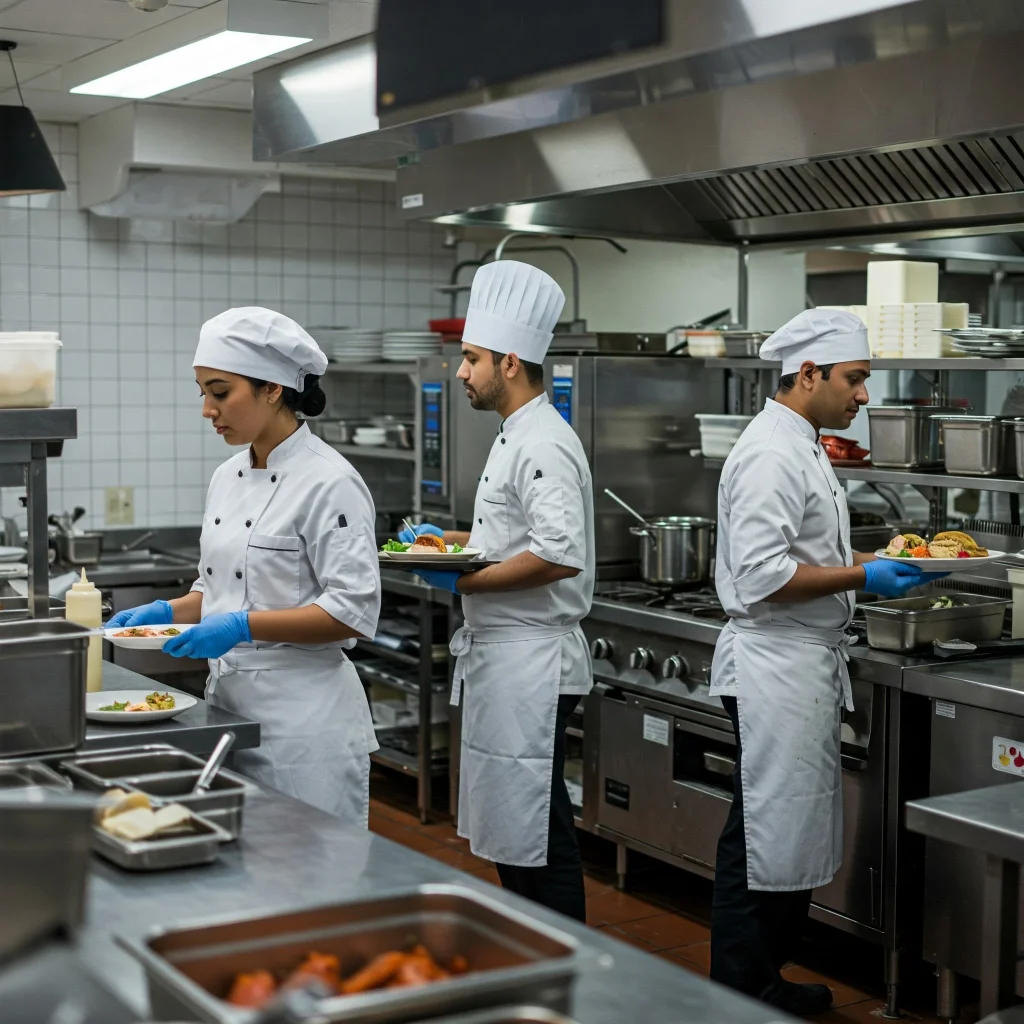
In today’s world, restaurants play a crucial role in the social and cultural life of societies. They are not only places to eat but also spaces for social interactions, cultural experiences, and the enjoyment of culinary arts. However, to succeed in this highly competitive industry, maintaining hygiene standards and delivering high-quality services is of utmost importance. In this article, we will explore various aspects of restaurant management, the importance of food hygiene, and strategies to improve service quality.
Importance of Restaurant Hygiene
Food hygiene is one of the most important factors in gaining customer satisfaction and protecting their health. Adhering to hygiene principles not only prevents foodborne illnesses and poisoning but also increases customer trust and enhances the restaurant’s reputation. The “Safer Food, Better Business” (SFBB) system is an international standard that helps businesses comply with hygiene regulations and offer higher-quality products.
Preventing Cross-Contamination
Cross-contamination occurs when bacteria or contaminants are transferred from one food item to another. To prevent this issue, the following should be considered:
Personal Hygiene: Regular handwashing, wearing clean work clothes, and observing hygiene protocols by staff.
Separation of Food Items: Storing raw and cooked foods separately, using different cutting boards for meat and vegetables.
Pest Control: Preventing the entry of insects and rodents into kitchen and storage areas.
Cleaning and Disinfection
Maintaining a clean workspace and equipment is vital. Regular cleaning schedules, handwashing before and after handling food, and the use of appropriate disinfectants are essential actions to implement. For more information, you can refer to the page on hygiene and cleanliness principles.
Food Storage and Refrigeration
Storing food at the correct temperature prevents bacterial growth. The refrigerator temperature should be between 0°C to 4°C, and food should be kept in sealed containers. Additionally, defrosting should be done in the refrigerator or under cold water, avoiding defrosting at room temperature. Learn more about food cooling and freezing methods.
Safe Cooking
Cooking food thoroughly to the correct internal temperature eliminates harmful microbes and bacteria. Using a food thermometer to ensure the right temperature and following recommended cooking times is advised. Click here for more training.
Restaurant Management
Successfully managing a restaurant requires careful planning, constant supervision, and effective strategies. Here are some key strategies:
Staff Training: Continuous training on hygiene, safety, and food quality is vital. Holding training sessions, providing educational materials, and encouraging staff to learn can significantly enhance restaurant performance.
Hygiene Rating: Displaying hygiene ratings helps customers make informed choices. Showing this rating in the restaurant and on the website demonstrates a commitment to hygiene standards.
Business Registration and Receiving SFBBCERT:
After launching or acquiring a restaurant, it is essential to register the business with national licensing bodies and obtain the SFBBCERT. This certificate indicates compliance with hygiene and quality standards in service delivery. Registration must be completed at least 28 days before operations begin.
Strategies to Improve Service Quality
Diverse Menu: Offering a variety of dishes that cater to different tastes and needs.
High-Quality Ingredients: Sourcing fresh, high-quality ingredients from reputable suppliers.
Pleasant Environment: Creating a clean, comfortable, and attractive atmosphere for customers.
Customer Service: Treating customers respectfully and professionally and addressing their needs and requests.
Conclusion
Restaurants, as a vital part of the food and hospitality industry, must adhere to hygiene and management standards to succeed in today’s competitive market. By implementing management systems like the SFBB standard, continuously training staff, obtaining the SFBBCERT, and focusing on service quality, restaurants can achieve these goals and ensure customer satisfaction.
If you own a restaurant and want to elevate your business, registering for the SFBBCERT program can be a crucial step toward improving service quality and meeting hygiene standards. By obtaining the certificate and benefiting from specialized training, you can ensure compliance with health regulations and gain greater customer trust.

No comment